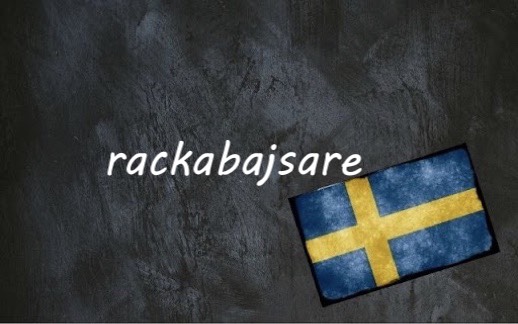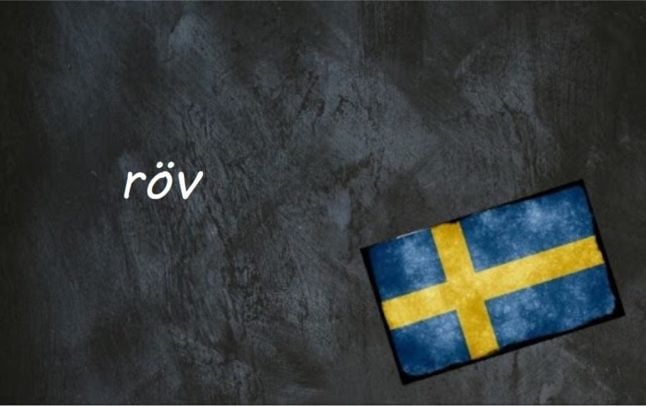A rackabajsare is either a shot of a spririt, or a hard shot in a sport. You might also see a type of strongly-flavoured (smoked or spicy) sausage known as a rackabajsare in some delis.
Rackabajsare according to the Swedish Academy is a word of unknown origin, despite some claiming its origin to be rachenbeisser in German, meaning ‘throat-biter’. Although that might be possible, there are also many other potential origins.
Like so many other Swedish words, rackabajsare contains the Swedish word for ‘poo’, bajsa. A bajsare would be ‘a person who poos’, and herein lies the crux, because the word racka can have more than a few things to do with poo.
Rackare today is used much in the same way as ‘rascal’ is, but it was not always so, rackare used to be much harsher. It used to mean something more like a ‘scoundrel’, and then somewhere in the 1800s this meaning began to shift and become weaker.
You may think that this racka is related to the racka in byracka, which means ‘mutt’ or ‘mongrel’. The origin for that racka is the Old Norse rakke, which also has an unknown origin and meaning, though some claim it is a word for ‘dog’. This would give us ‘dog pooer’, which really makes no sense, so this is most likely not the racka we are looking for.
Another, but now archaic, meaning of rackare was ‘a person whose profession it is to remove dirt and the like [as in poo] from streets and outhouses.’ If the word order was reversed, as in bajsrackare (poo-cleaner), this could be the original meaning, but it seems unlikely.
Racka could also be another way of writing rak meaning ‘straight’, here in the sense as in ‘to the point’ or ‘straight away without thinking about it’, which could then mean something like ‘going straight to the shit’, which could work for both meanings of rackabajsare, ‘a shot of a spirit’ and ‘a hard shot in any sport’.
There is however yet another couple of confounding meanings of racka. A now archaic meaning of ‘running about’ could give us something like ‘a disorderly hit or shot’. And then there is the perhaps most interesting one. It turns out that racka used to be another way of saying ‘arrack’, the Southeast Asian spirit. This would really explain the first meaning of rackabajsare, ‘a shot of a spirit,’ but it still leaves us with questions as to the second meaning.
Alas, there is no clear answer to be found! That’s just the way it is sometimes. But though we are unfortunately unable to provide you with the original meaning of rackabajsare, we can leave you a few examples of how to use the word in everyday conversation.
Example sentences:
Ska vi ta en liten rackabajsare, eller vad säger du?
Should we have a cheeky little shot, what do you say?
Åh jävlar vilken rackabajsare!
Bloody hell, what a canon of a shot!
Villa, Volvo, Vovve: The Local’s Word Guide to Swedish Life, written by The Local’s journalists, is now available to order. Head to lysforlag.com/vvv to read more about it. It is also possible to buy your copy from Amazon US, Amazon UK, Bokus or Adlibris.



 Please whitelist us to continue reading.
Please whitelist us to continue reading.
Member comments